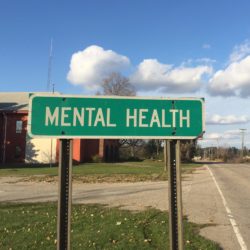Behavioral Health Initiative: Models and Lessons
Expanding access to care, promoting integrated care delivery, fostering collaboration and innovation, strengthening health systems—the Health Fund’s Behavioral Health Initiative aims to bring fundamental improvements to the state of behavioral healthcare in Michigan.
As exciting as our annual grant rounds are, we often learn the most after the end of a grant period. This page is a collection of some of our key takeaways: hidden connections, gaps in access, and exciting models for future replication. Learn with us!
What We've Learned
PUBLICATIONS
ACCESS TO BEHAVIORAL HEALTHCARE IN MICHIGAN — 2022 UPDATE
December 2022
This publication is an update of our previous report with Altarum looking at access to behavioral health care among Michigan residents. Using data from 2019, the report offers a comprehensive examination on the state of behavioral health access just prior to the COVID-19 pandemic and includes new details on specific subpopulations.
RESOURCES TO HELP SELECT BEHAVIORAL HEALTH AND WELLNESS MOBILE APPLICATIONS
May 2022
This report provides information about the use and availability of behavioral health and wellness mobile applications and the value they can add for both providers and individuals.
RAPID RESPONSE TELEHEALTH: FINAL REPORT
February 2022
This report examines key lessons and impacts from the Health Fund’s expedited telehealth funding in early 2020 in response to Michigan’s increased need for virtual care during the pandemic.
RACIAL/ETHNIC AND GEOGRAPHIC DISPARITIES IN BEHAVIORAL HEALTHCARE IN MICHIGAN MEDICAID
March 2021
Through rates of behavioral health treatment and follow-up care in nine Michigan counties and ten PIHP regions, this data-driven report identifies key disparities in quality of care.
2016 AND 2017 BEHAVIORAL HEALTH COHORT REPORT
November 2020
The successes and challenges from our first two years of grantmaking reveal some key lessons—particularly about the common ingredients of effective, sustainable projects.
ADVERSE CHILDHOOD EXPERIENCES IN MICHIGAN
October 2019
Adverse childhood experiences (ACEs) are a risk factor for numerous health risk behaviors and negative health outcomes. In this report: the prevalence and influence of ACEs in Michigan, and how we can address them.
ACCESS TO BEHAVIORAL HEALTHCARE IN MICHIGAN
May 2019
Access to behavioral healthcare is a critical challenge in Michigan—a challenge which we were able to quantify with this landmark study. In addition to identifying gaps, this publication highlights potential response strategies.
THE ROLE OF HEALTH TECHNOLOGY IN MICHIGAN
May 2019
Technology isn’t a cure-all, but it can be a game-changer when applied strategically. This report examines Health Fund technology grants and the lessons they hold for maximizing our impact in future grantmaking.
BEHAVIORAL HEALTH CRISIS SERVICES: MODELS AND ISSUES
February 2018
Emergency departments are not best suited to handle behavioral health crises. This report explores better response models in and out of hospitals and identifies barriers to meaningful change. The Health Fund also prepared this supplemental document [PDF] connecting the report to our work and making recommendations based on its findings.
CASE STUDIES
WOMEN'S LIFE RECOVERY PROGRAM
June 2023
NORTHWEST MICHIGAN BEHAVIORAL HEALTH PLANNING INITIATIVE
March 2023
In Northwest Michigan, provider shortages, stigma, and other barriers required urgent cross-sector action to improve access to behavioral health care. Together, partner organizations organized community summits, which attracted hundreds of participants and led to action committees with concrete and short-term action steps and wins.
IHELP: TECHNOLOGY-BASED SUBSTANCE USE SCREENING
March 2023
In an effort to improve access to substance use screening for youth and teens, Henry Ford Health adapted a digital screening and brief intervention tool to complete standardized screenings. The software provides results that fully integrated into the electronic health record and provides instant, tailored interventions depending on youth responses and preferences.
BRINGING CARE TO THE CLASSROOM
March 2021
Schools can be a safe, reliable access point for behavioral healthcare, including telehealth visits. In this interactive online report, we explore a successful school-based telehealth model from the Family Medical Center of Michigan.













